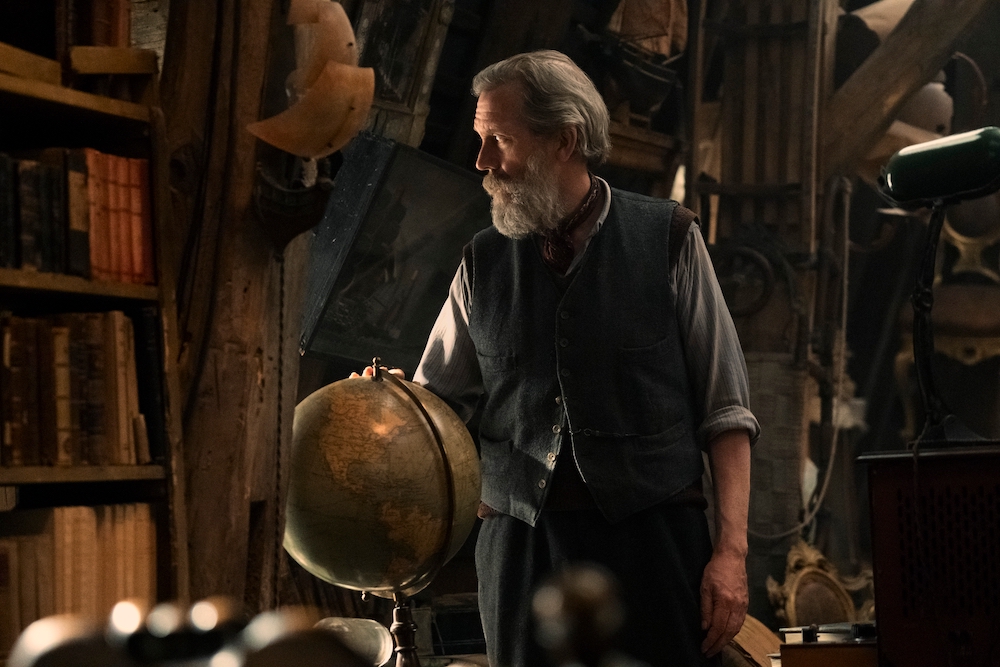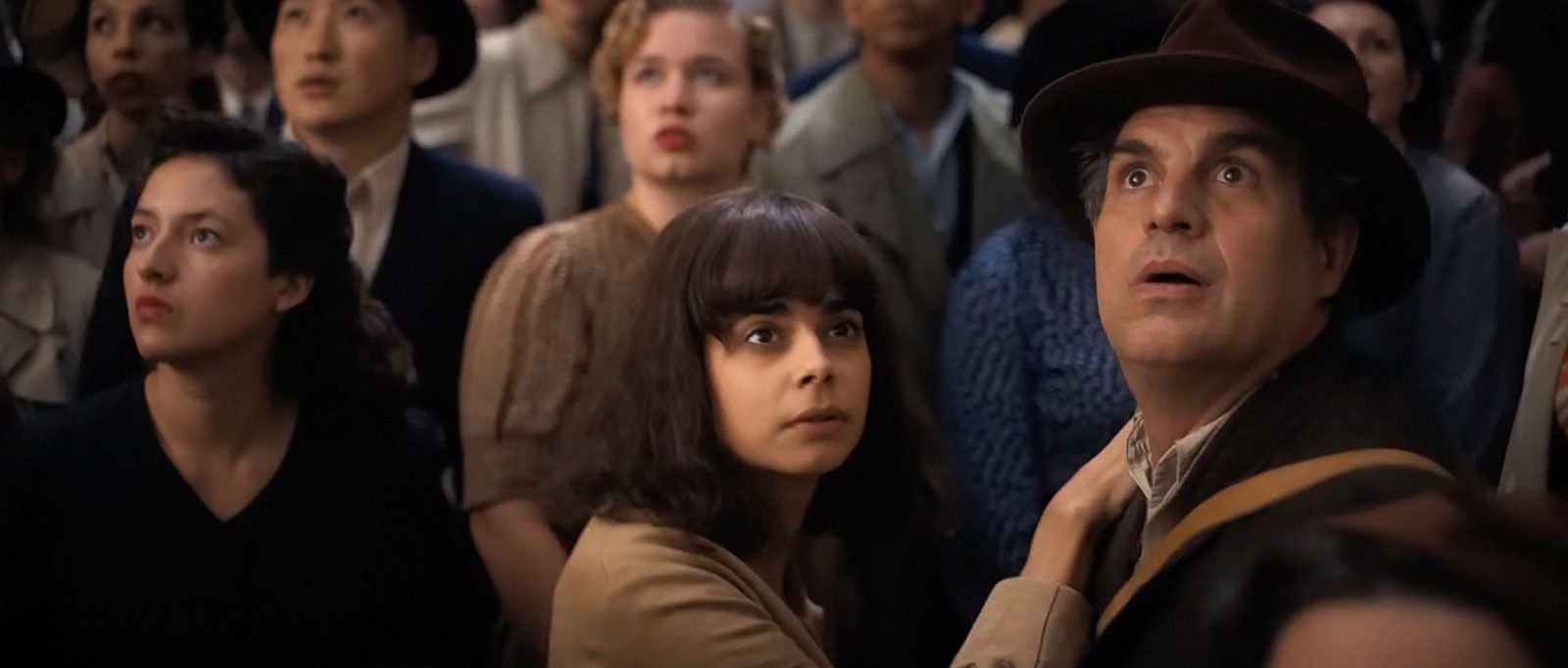‘All the Light We Cannot See’ is a Netflix miniseries created by Steven Knight about hidden stories during World War II in Nazi-occupied Saint-Malo in France. It revolves around the emotional backstories of Werner Pfennig and Marie-Laure LeBlanc, who are both trapped in Saint-Malo as it gets bombed by the Americans to free it of the Germans. While Marie is a French blind girl helping the American bombers with coordinates through her radio broadcast, Werner is a German soldier working for the Nazis, who, for the most part, is the only radio operator on his team, and hears Marie’s voice every night but doesn’t report her.
They both share a special connection that Werner finds out before Marie does. In his childhood, even if it was punishable by death, Werner secretly grows up listening to a wise professor on French radio who talks about life and hope. Similarly, Marie listens to the same professor growing up, not knowing who he is but feels hopeful after listening to his teachings. As the story progresses, more details about the professor are revealed, and his connection to their stories. SPOILERS AHEAD!
The Professor Is a Huge Part of Marie and Werner’s Lives
In the series, Marie and Werner keep listening to the professor’s teachings in their childhood and just know him as someone who broadcasts on the frequency shortwave 13.10. It becomes an escape for the orphaned Werner, who starts imagining the professor as a father figure. For a blind girl like Marie, the idea of there being a light that we cannot see, which is something that the professor discusses, keeps her going despite the challenges she has to face growing up. Their lives start revolving around the professor, who only broadcasts at night and keeps giving them hope.

Much later, when Marie is forced to flee Paris with her father, Daniel, when the Germans take over, they head to Saint-Malo, where Daniel’s uncle Etienne lives. Since Marie has a heightened sense of hearing, she automatically recognizes Etienne as the professor, who initially tries to deny it but later admits that he is, in fact, the professor. He reveals that he used his radio before the Germans came to preach peace, and now he uses it as an instrument of the war. When Werner meets him for the first time outside Marie’s house, which is also Etienne’s, he initially doesn’t recognize him. But later, after talking to Etienne, he, too, knows for sure that he is the professor. Etienne also admits it to Werner, but mostly moments before he dies.
In the novel, however, there’s a huge detail about the professor that has been tweaked. Etienne is Marie’s great-uncle, who also had a brother, Henri, who was Marie’s grandfather. The character of Henri isn’t mentioned in the show, even if he is the reason children like Marie and Werner knew about the professor from the radio. In the book, Henri and Etienne recorded scientific programs for children, which Etienne played later after Henri died in World War I, to honor his memory and in the hopes that he would hear Henri’s voice again and he might respond. Just like in the series, Etienne also suffers from agoraphobia, mostly due to whatever he witnessed in the war, and after the shock of losing his brother, it gets worse.
But the series totally ignored Henri in the discussions with the professor, even if it was mostly his voice that the children heard on the radio. This has been completely changed in the series as both Marie and Werner recognize Etienne as the professor from his voice. More than that, Etienne and Werner never meet in the novel, but a significant part towards the end of the series shows how Etienne and Werner grow to develop a bond within a few hours, especially since Werner recognizes him as the professor.
Read More: All the Light We Cannot See: All the Differences Between the Book and the Show


You must be logged in to post a comment.